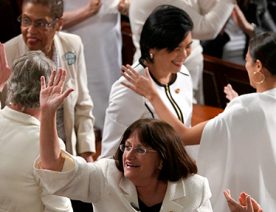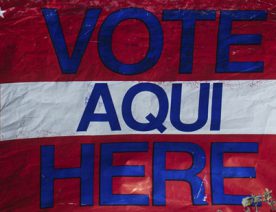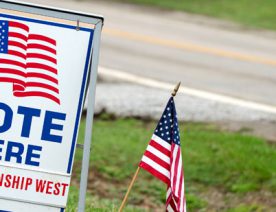
In the wake of Hillary Clinton’s historic nomination as the first woman standard-bearer of a major political party, women continue to face obstacles in politics and the workplace, according to a national poll conducted by The Associated Press-NORC Center for Public Affairs Research.
Large majorities of Americans regard women political leaders as equal to men and think a woman would be up to the challenges a president may face. Only 3 in 10 Americans expect Clinton’s gender to hurt her chances in November, and the same number think she is being held to a higher standard than other candidates because she is a woman.
But about half of the public think women still have fewer opportunities in politics than men. And while three-quarters of the public say discrimination against women has decreased over the past 25 years or so, an equal number of Americans think it continues to be an issue today for many women.
Women are particularly likely to say they are given fewer chances to succeed in politics. And women are more inclined to say that Clinton’s gender is a disadvantage, while men tend to say the fact that she is a woman will help her chances of being elected.
The nationwide poll of 1,096 adults was part of the AmeriSpeak® Omnibus, a monthly multi-client survey using NORC at the University of Chicago’s probability-based panel. Interviews were conducted between August 11 and 14, 2016, online and using landlines and cellphones.
Three Things You Should Know about
The AP-NORC Poll on gender discrimination in the United States:
Among All American Adults
- Seventy-five percent say women and men make equally good political leaders, but 53 percent say women have fewer opportunities in politics than men.
- Three-quarters think there is at least some discrimination against women in this country, although just as many say it has decreased over the past generation.
- Twenty-nine percent expect Clinton’s gender to hurt her chances in November, and 28 percent think she is being held to a higher standard than other candidates because she is a woman.




